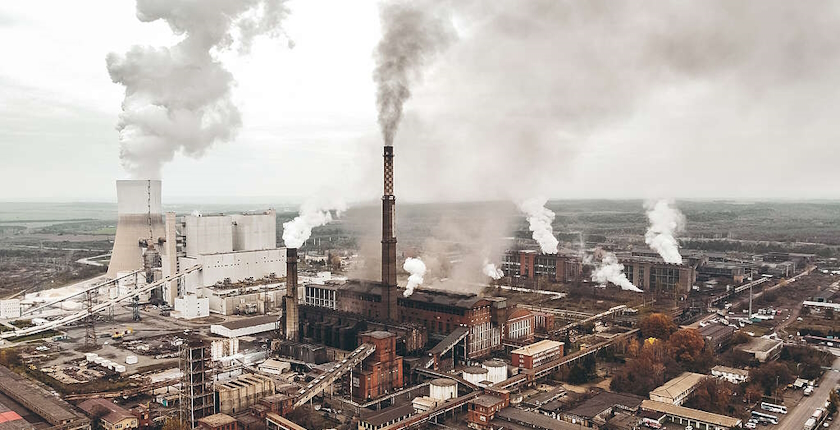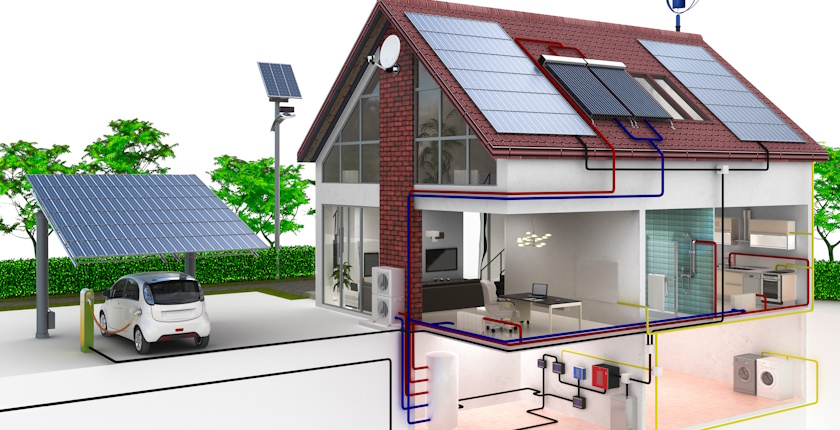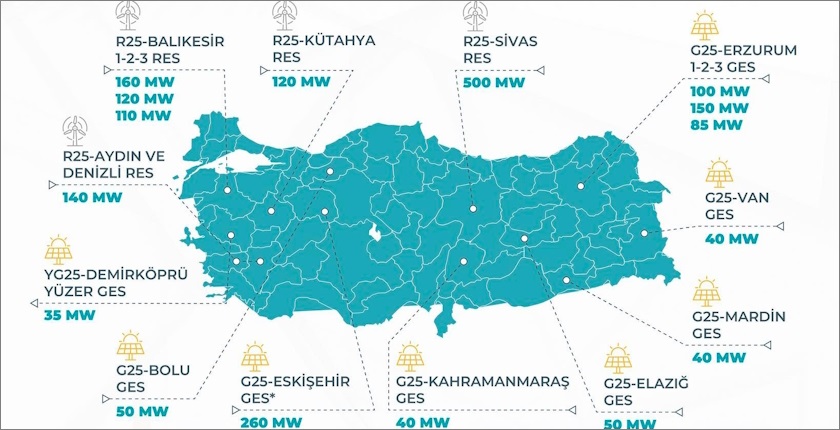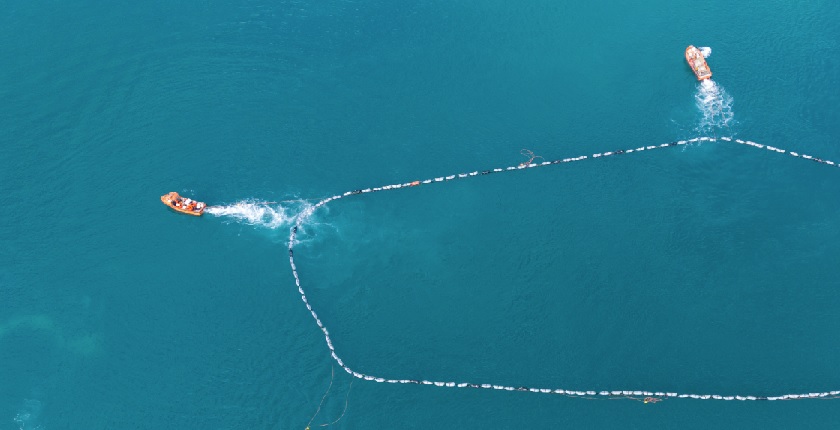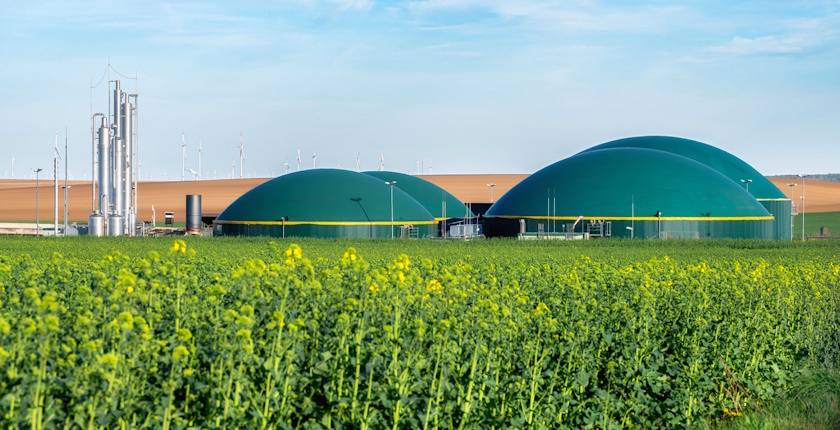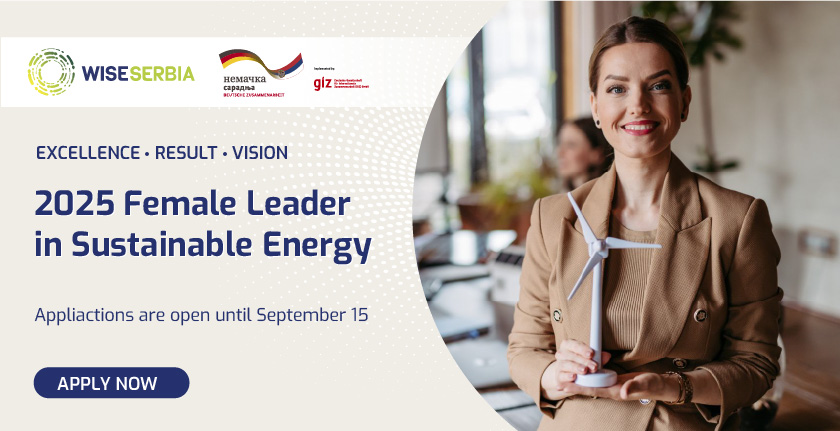
September 15 – new deadline for applications for 2025 Female Leader in Sustainable Energy
WISE Serbia, women’s network in sustainable energy, climate action, and environment, under the auspices of the German development cooperation GIZ, has extended the deadline for applications within the 2025 Female Leader in Sustainable Energy award. The new application deadline is September 15.
The call for nominations aims to recognize women who, through their leadership, outstanding achievements, and vision, have demonstrated significant contributions to the sustainable development of Serbia’s energy and related sectors, energy transition acceleration, improvement of energy efficiency, energy security, and safety, as well as the greater recognition of women in this field.
Information about the Award competition
Women professionally engaged in the energy sector, climate action, or environmental protection in Serbia are eligible to apply, both citizens of Serbia and foreign nationals working in Serbia. The candidates themselves can submit applications, as well as their employers, colleagues, or teams who wish to highlight the outstanding achievements of their associates.
The invitation is open to all profiles – decision-makers, employees in business, public enterprises, academia, civic energy, non-governmental sector, international organizations, consulting teams, legal and financial institutions, IT experts, as well as media representatives.
The application needs to be emailed by September 15, 2025, to info@wisesrbija.org. It needs to include:
- Nomination letter presenting the candidate and listing the significant results and achievements nominating her for the selection.
- Professional résumé.
- A short nomination statement to present to the wider public on the WISE Serbia website and social media platforms. The statement should be up to 100 words.
- Photo portrait in high resolution.
- Contact info – email address, phone number, social network accounts that the candidate is actively using.
Applications should be sent by email to info@wisesrbija.org.
After processing the submitted applications, the candidates’ profiles will be published on the WISE Serbia network website – wisesrbija.org, and the voting will be open to the public. The candidate with the highest number of votes will be awarded the title of Female Leader in Sustainable Energy.
The announcement ceremony for the Leader in Sustainable Energy 2025 will take place during the WISE Serbia women’s network annual conference in mid-October in Belgrade.

